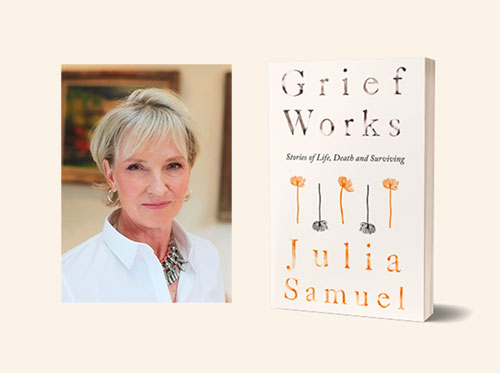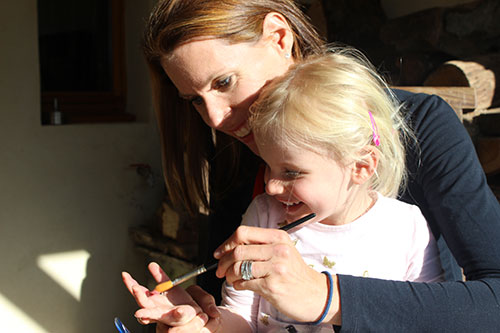Guest Blogs
Knowitall.ch often invites local experts in their field to contribute to their own blogs on our site. This means not only you will benefit from the useful recommendations that we make on our News pages, but you can also profit from some of the great advice and tips that these experts have to make on their favorite subjects. Whilst each of these bloggers has been recommended to us at some point during the evolution of Know-it-all passport and knowitall.ch, obviously we are not able to test out all the suggestions they make on their blogs, nor do we necessarily agree with all their opinions. So if you do find one of their tips useful (or not!), do let us know!
To make these blogs more accessible to you, we have now decided to group them altogether in one section, entitled Guest Blogs, accessible from our main menu bar. We will also post the most recent blogs on the home page of our site in the right hand column.
We are still building up this area of the site, and are looking for bloggers in a number of sections, including Your Home, Travel, and Leisure, so if you feel you have a useful contribution to make in either of these areas, and have the time to submit blog entries approximately every month, then please get in touch!

By Michela Mantani, La Côte International School
Across the globe, one of the hottest topics in education at the moment is whether we should be teaching our children how to manage their emotional state and be in charge of their own wellbeing. In Asia meditation classes are on the rise to help students cope with stress levels and develop emotional resilience, while in Great Britain recent statistics have shown that an average of 3 children per classroom have mental health issues ranging from anxiety to burn-out, which may lead to low-level disruption.
As our youngsters lead increasingly stressful, over-planned lives, screen time and excessive stimulation have also been linked to the rise of mental disorders in children. The burning question on every educator’s mind at the moment is, without a doubt: “What can our schools do to help students regulate their emotions and improve their daily interactions with others?”
In recent years, a growing number of scientific studies have underlined the benefits of mindfulness exercises for students, based on solid evidence relating to the impact of mindfulness on adults, as well as encouraging indications on the positive impact that a regular practice of meditation and breathing techniques can have on children and young people.

By Sunita Sehmi, Walk The Talk
An interview with the wonderful and wise Julia Samuel
The Hon. Julia Aline Samuel MBE is a British psychotherapist and paediatric counsellor and the daughter of James Guinness and his wife Pauline. Julia Samuel is also Godmother to Prince George and one-time close friend of Diana, Princess of Wales. Julia was awarded an MBE in the 2015 New Year’s Honours list for services to the bereaved. Grief Works is her first book. She has spent the last twenty-five years working with bereaved families. She began working at St Mary’s Hospital Paddington where she established the role of maternity and paediatric psychotherapist. In 1994, she helped establish Child Bereavement UK. She is its Founder Patron and continues to play a central role. In her first book Grief Works Julia believes it is important to acknowledge that death is an inevitable part of life, and yet we still find it difficult to talk about. There are countless books on the market written about this sensitive topic but there is not one that is so accessible, plain talking and soothing. Grief has been a huge part of my life after my husband lost his mother when he was 22. I bought Julia’s book to understand this complex issue. I was so moved by her courage to talk about the unspeakable and go to those places as a society we don’t dare to go to. I feel so very fortunate to have interviewed her. Enjoy.
“Whether it’s the Duke of Cambridge grieving the loss of his mother or it's one of her NHS patients, feelings don’t change because of background.”
Tell us about yourself.
I am 58, I have been a psychotherapist specialising in grief for 25 years. I have four children and four grandchildren. My first counselling job was as a volunteer for Westminster Bereavement Service 26 years ago. Although I felt daunted, inadequate and scared in the face of their anguish I knew early on I had found the job for the rest of my life. It led me to persuading a board of Obstetric Consultants at St Mary’s Hospital, to take me on as their first counsellor; to support the families whose babies and children had died. I worked there for the next twenty-three years. I learned from those families, that the response they received at the time of the death; how they were spoken to, the choices and information they were given, how much time they had with their child before and after the death, had a significant impact on how their grief progressed. It inspired a determination in me to take that learning beyond my room in Paddington, out into the world. So, with Jenni Thomas as Founder, I worked as Founder Patron to establish and launch Child Bereavement UK.

by Milena McRae, www.milenamcrae.com
I’ve been truly lucky to be working with some very special and unique people over the last few months. In that time it feels we’ve jointly moved a few mountains, making some important changes to not just one person's life, but also to many of the most important people who share the lives of each of us.
Lucy is one of those special people and she has asked me to provide some feedback on her experiences in the hope that her story will inspire others. We have worked together closely over three months completing my DreamBuilder program. The quotes below are written personally by her.
Lucy explained that “As a family we had been through a number of difficult challenges - infertility, behavioural problems with our children, and two international moves. Combined with giving up a career to become a full-time mother, I felt like I had given up all sense of me. Whilst my priority will always be with my children, I wanted to work out what I could do for me to give myself back a sense of pride in myself and to actually feel like I was achieving something again.”
She has now discovered her dream to “…run a small business doing something that I love, and that I'm quite good at!” Lucy, has also acted on her discovery. Her business is now operating, leveraging what she can do from where she stands today,…she had more capability and help at her disposal than she expected. “I now know that I want to "design" my life rather than just live it by "default"...and do what I believe is expected of me. I definitely feel a greater sense of enjoyment in my life now and I am excited for the future.”

By Audrey Flynn, Forth Capital
Judith
Judith has been married to Steven for almost 15 years. She stopped working several years ago, to look after their two children, returning to work part-time at a lower level when the children started school. Five years ago, Steven had the opportunity to work in Asia for several years and Judith happily gave up her job to move there with him and the children. Then, without warning, Steven announced that he wanted a divorce which forced Judith to reassess her life and her financial situation for the future.
Like many women Judith hadn’t contributed to a pension scheme on a full-time basis for most of her adult life, as she had taken career breaks to look after her children and to support her husband in his career. She had always relied on Steven to manage the family finances with minimum discussion, and without contemplating her own pension.
The sudden break down of her marriage forced Judy to look more closely at her financial situation and realise that she had never sensibly planned for her own retirement, relying entirely on her husband for their retirement plans. She had no idea how much money she had, nor how much she would need to save to enjoy the lifestyle she hoped for when she retired - and she had no idea where to start…

Photo by Deborah Berlinck
By Claire Doole, Claire Doole Communications
I know very little about classical music, but I was privileged to have a front row seat to a master class given by Gabor Takacs-Nagy. As I watched Takacs-Nagy in action, I realised much of what he said applied to public speaking – a world I know more about.
Takacs-Nagy, a renowned Hungarian violinist and conductor, is Director of the Verbier festival chamber orchestra. The festival, in the heart of the Alps, runs from 21st July to the 6th August, and is a key event in the classical music calendar.

Photo by Deborah Berlinck
So what does playing in public and speaking in public have in common?






